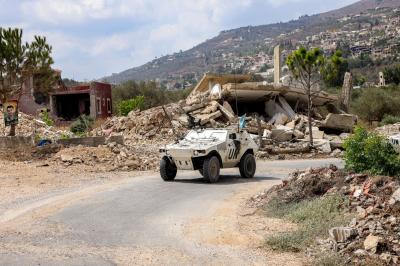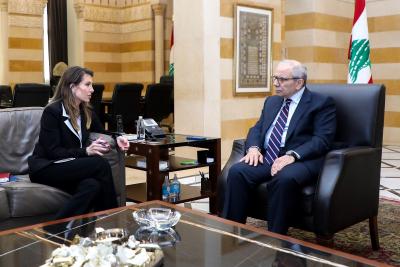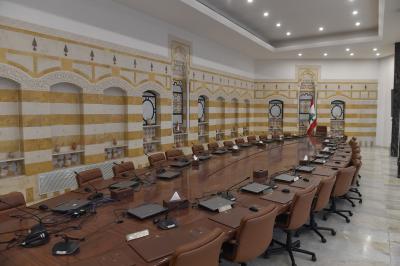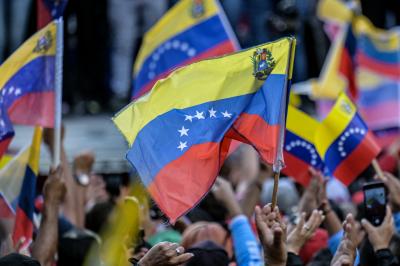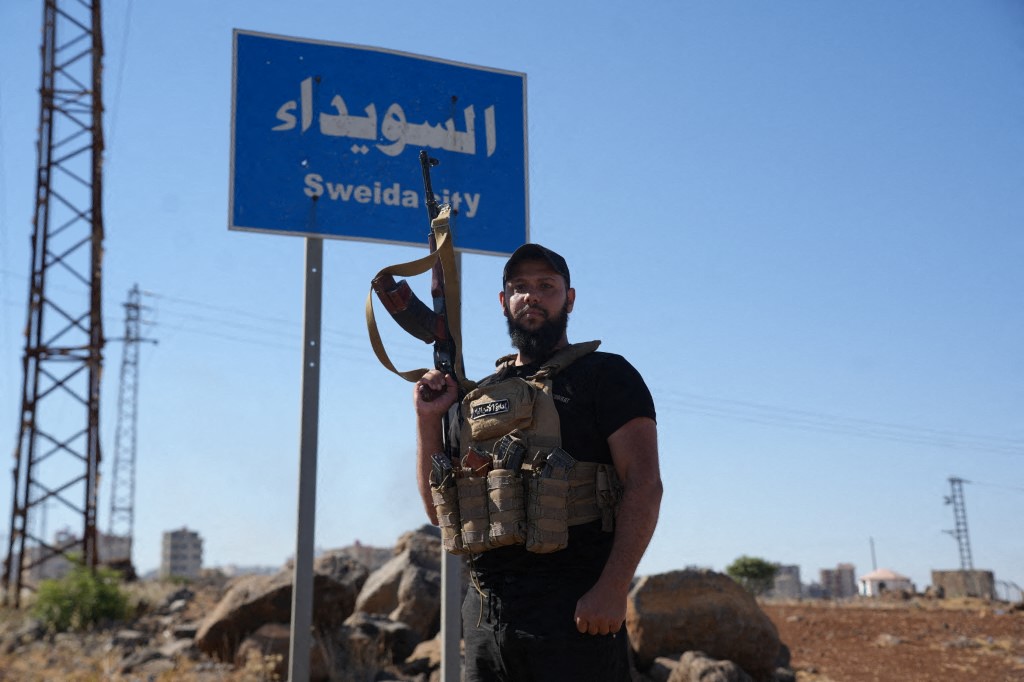Amid escalating Israeli aggression and looming diplomatic deadlines, Lebanon’s tripartite committee is racing to finalize its response to the latest American proposal. U.S. envoy Tom Barrack is expected in Beirut next week to receive Lebanon’s official reply and hold critical discussions.
The American paper, while diplomatically worded, essentially communicates Israeli demands through a U.S. lens. It asks Lebanon to implement a set of measures, even as Israel continues to occupy Lebanese territory, attack civilians, and unilaterally redraw its “security borders” in the south.
Top of the list of these demands is a clear timeline for the disarmament of "Hezbollah". The paper calls for a phased, monitored process—beginning with heavy weapons and drones, followed by light arms—across southern Lebanon, the Bekaa Valley, and Beirut. The Lebanese army is expected to lead this operation with a comprehensive deployment and scheduling plan. It also addresses Palestinian arms in southern refugee camps.
Lebanon finds itself at a critical impasse. The so-called "conditions paper" appears unworkable, especially given Washington’s refusal to offer any guarantees regarding an Israeli withdrawal or cessation of hostilities. On the other hand, "Hezbollah" is unlikely to surrender its arsenal while Israel remains in violation of the ceasefire and continues its occupation.
Complicating matters further is the Syrian precedent. Recent developments in Suwayda, and attacks against Alawites and Christians in various regions have reignited Lebanese fears of Israel’s broader regional ambitions. Despite Syrian President Bashar al-Assad offering political concessions to the West and receiving support from Turkey and international actors, Israel launched repeated strikes—targeting key institutions like the Ministry of Defense and the Presidential Palace—while expanding its hold over Syrian territory.
Throughout both the initial American paper and the current one under review, Lebanon has consistently reaffirmed its commitment to international resolutions: from the armistice agreement to UN Security Council Resolution 1701, and most recently, the ceasefire proposal. The Lebanese government insists that any discussion on "Hezbollah"’s weapons must occur through national dialogue and avoids inflammatory rhetoric that could give Israel justification for escalation. The expected response will likely maintain this careful balance.
Lebanon’s official position remains firm: no discussion of disarmament without a simultaneous Israeli withdrawal and halt to aggression. The government also opposes the "step-by-step" model unless Israel takes the first step.
Interestingly, the second U.S. proposal seems to disregard Lebanon’s prior response to the initial paper, offering instead a fresh batch of demands. This is despite Barrack having previously expressed satisfaction with Beirut’s earlier reply.
Such contradictions have raised doubts about Barrack’s credibility. On one hand, he expresses approval; on the other, he returns with new ultimatums. Notably, Barrack himself once warned that forcibly disarming "Hezbollah" could trigger civil war. Now, however, he demands a timeline for disarmament, presses the Lebanese army to act, and indirectly blames it for inaction—potentially pushing it into a dangerous confrontation with "Hezbollah".
From Lebanon’s perspective, Washington must provide credible guarantees that Israel will withdraw and end its attacks. Only then can Beirut begin discussions around arms control. In essence, Lebanon is asking the U.S. to support its sovereignty and remove the “weapons issue” from Israel’s arsenal of justifications, thereby allowing the Lebanese state to negotiate from a position of strength.
Still, Lebanon stands at a crossroads, uncertain how to navigate this turbulent moment. Israeli aggression may once again become a tool of negotiation under fire, as hinted by Barrack’s warning: “Don’t count on Trump’s patience,” suggesting the U.S. may abandon Lebanon to its fate.
Ultimately, the Syrian example haunts Lebanon’s decision-making. Why would Lebanon’s Shia community disarm when the Suwayda events have prompted Druze factions to consider rearming? "Hezbollah" suspects that disarmament may pave the way for Israeli expansion—not just in the south and along the Syrian border, but into the Bekaa Valley as well.
Time may be Lebanon’s only card. Either the mounting U.S. pressure will force Israel to compromise, or Tel Aviv will unleash its full military power, replicating the Syrian scenario to impose a new status quo by force.
Please post your comments on:
[email protected]
 Politics
Politics
